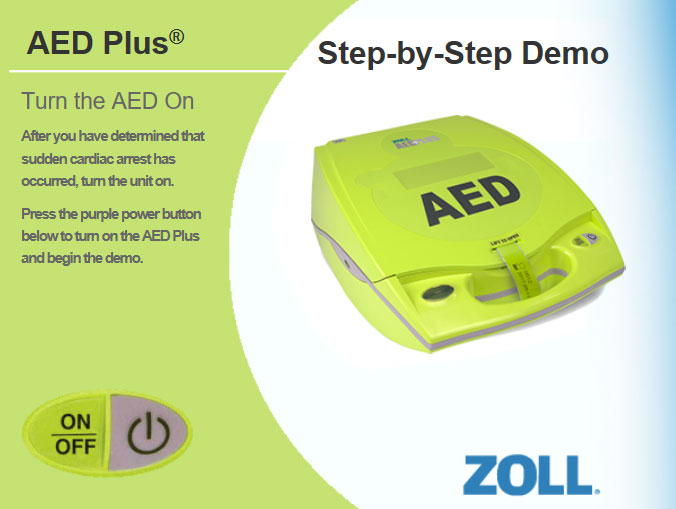

Our City of Burlington rinks are all equipped with ZOLL Defibrillators near the entrance to each arena.
Sudden cardiac kills over a million people annually around the world, and it's preventable. A sudden cardiac arrest can happen anywhere, to anyone. In a cardiac emergency, when time and training matter most, you need to get the Defibrillator to the patient ASAP.
https://www.heartnhockey.ca/ -
Team captains/organizers designate 3 individuals to take on the vital roles
of the “three pass play”.


Contact 911 Perform CPR Operate the AED
This video provides an overview of how to use an AED (Automated External Defibrillator). These devices can help a patient in cardiac arrest. Once activated the AED provides clear audio instructions that guide the user through the steps. Early use of an AED is an important step in improving a patient’s chance of survival.

View a step-by-step demonstration here
Call 911 if the person is unconscious, has lost consciousness or had a seizure.
If they are conscious:
Symptoms may appear hours or days after an injury, especially in children and the elderly. If symptoms appear or persist, visit a physician or nurse practitioner.
Everyone can help recognize a possible concussion if they know what to look for.
A person with a concussion might have any of the signs or symptoms listed below. They might show up right away or hours, or even days later. Just one sign or symptom is enough to suspect a concussion. Most people with a concussion do not lose consciousness.
Follow these three steps if you — or someone you know — experiences a blow to the head, face, neck or body and you suspect a concussion. Call 911 if you are concerned the injury is life-threatening, such as the person is unconscious or they had a seizure.
These resources are not intended to provide medical advice relating to health care. For advice on health care for concussion symptoms, please consult with a physician or nurse practitioner.